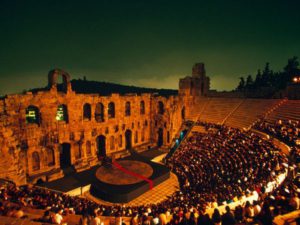
El Oikos in Ancient Greece it was the house as a set of goods and people. In the city states the Oikos was the "basic unit" of society. The head of the Oikos was generally a male, the oldest, made up of the family, property, all personnel, and slaves. Running it was running the farm in general and keeping the family together.
When Oikos they were large and important, they had farms worked mostly by slaves and became the "basic agricultural unit."
It was an autarkic economic and social unit (Autarchy from Greek, those who are self-sufficient, those who produce everything enough to satisfy basic needs).
The whole life of the family revolved around the Oikos, in which all the needs were satisfied, all the material of its members, but also the social, security, ethical, obligations, everything related to the gods, etc.
Aristotle defines the Oikos as a "community constituted naturally for the satisfaction of everyday foolishness."
Xenophon defined Oikos as the house as residence and Oikia encompasses not only the house but also the properties.
In Athenian law he also distinguishes the concepts Oikia from Oikos.
In the XNUMXth century BC, different ancient Greek authors defined the concept of Oikos and “oriented the nature of the Oikos with the polis; the conflict between these two was treated in the Greek tragic theater. The contradictory interests of the Oikos and the polis, led to the structural decay of society ”.